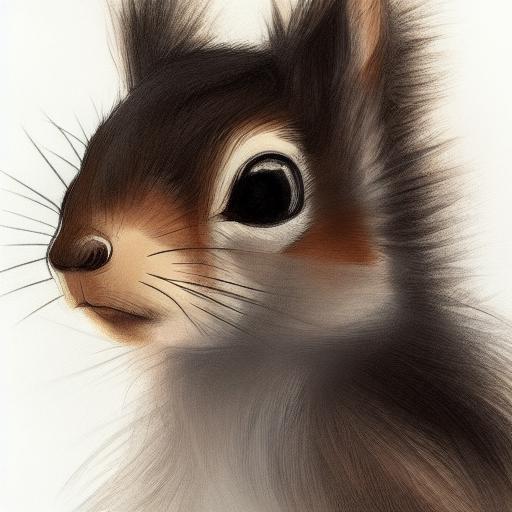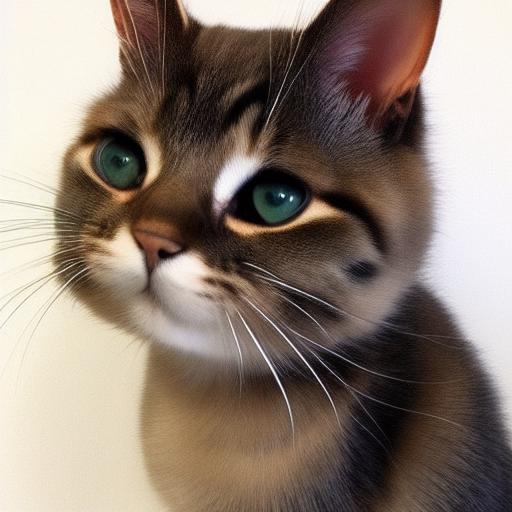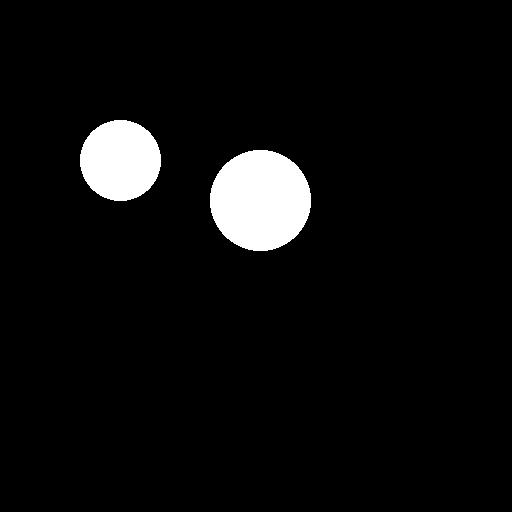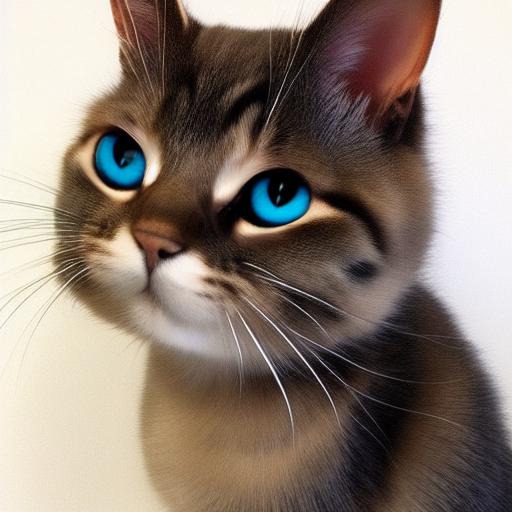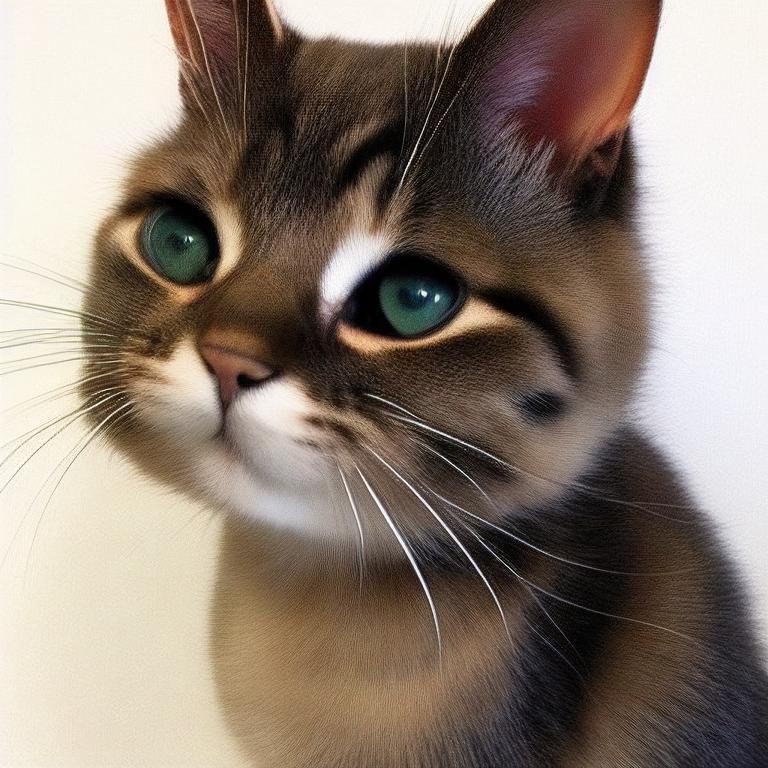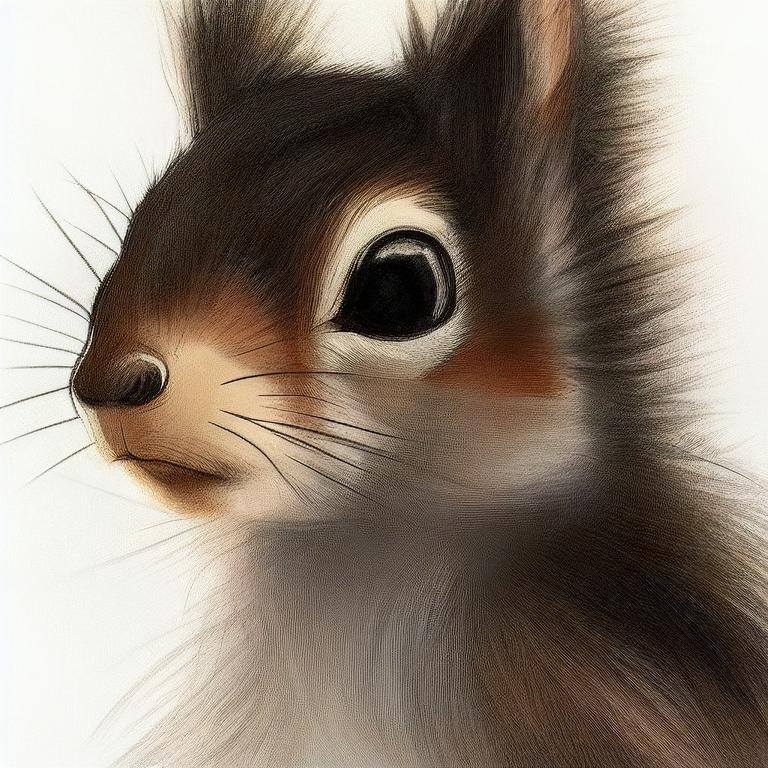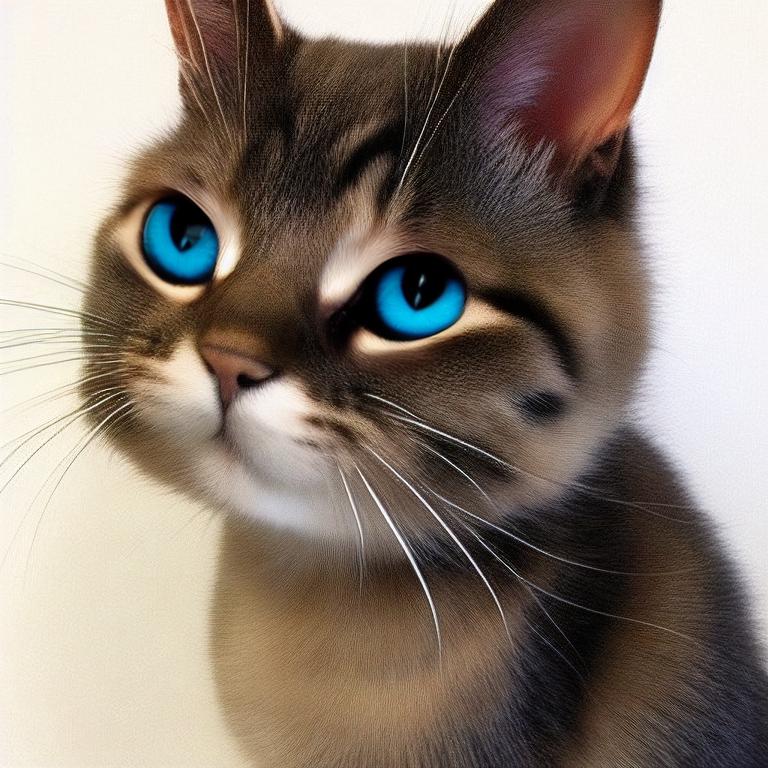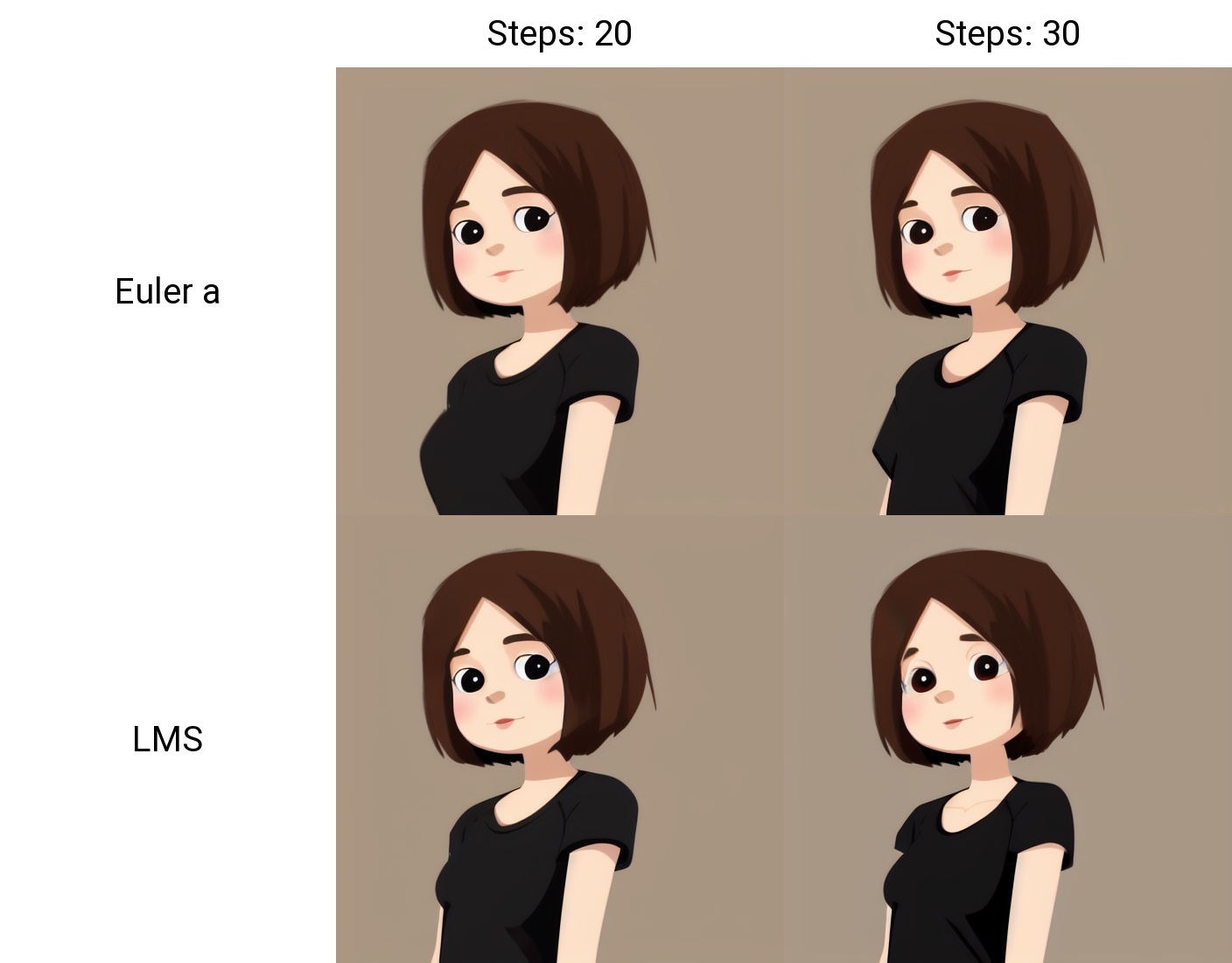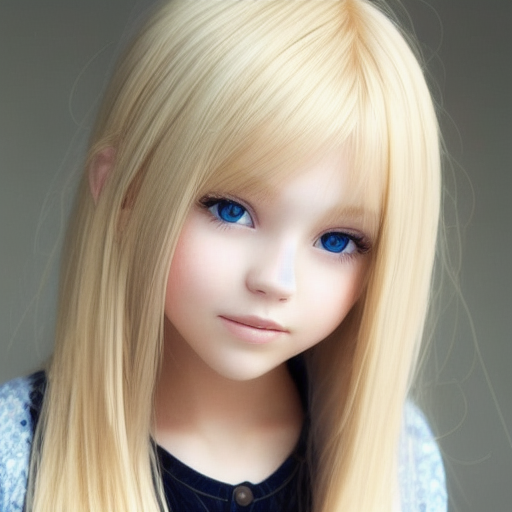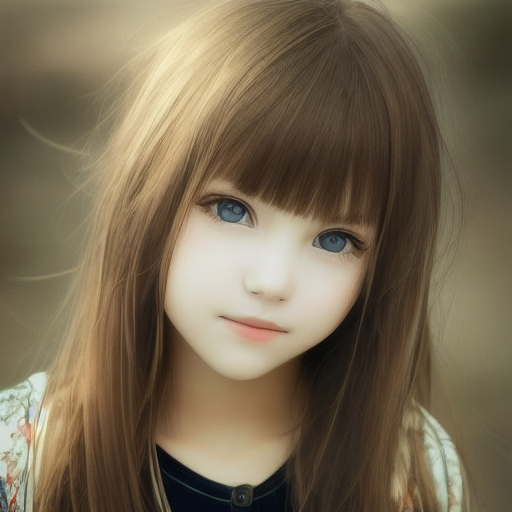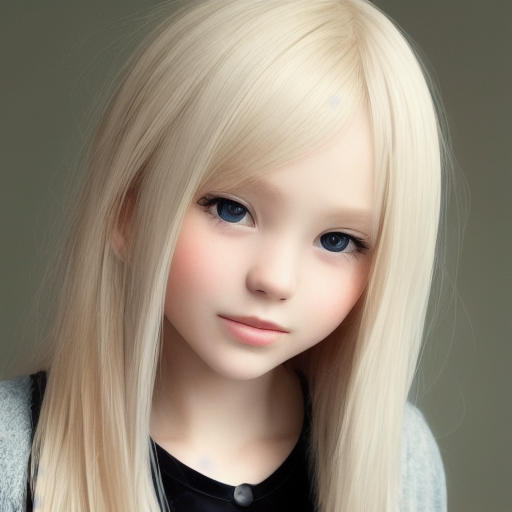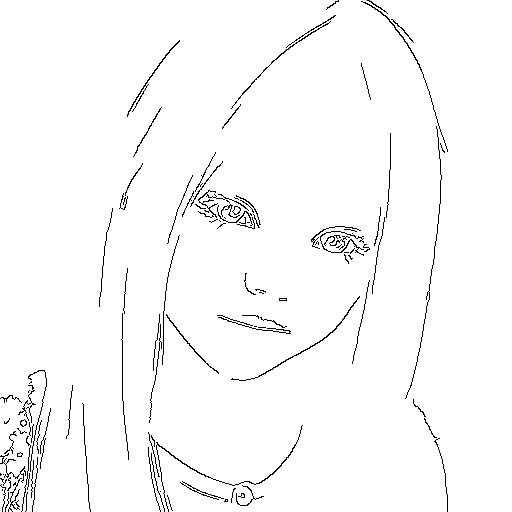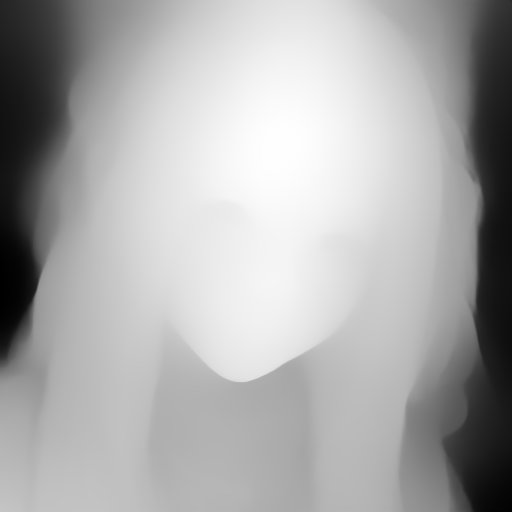API client for AUTOMATIC1111/stable-diffusion-webui
Supports txt2img, img2img, extra-single-image, extra-batch-images API calls.
API support have to be enabled from webui. Add --api when running webui. It's explained here.
You can use --api-auth user1:pass1,user2:pass2 option to enable authentication for api access. (Since it's basic http authentication the password is transmitted in cleartext)
API calls are (almost) direct translation from http://127.0.0.1:7860/docs as of 2022/11/21.
pip install webuiapi
webuiapi_demo.ipynb contains example code with original images. Images are compressed as jpeg in this document.
import webuiapi
# create API client
api = webuiapi.WebUIApi()
# create API client with custom host, port
#api = webuiapi.WebUIApi(host='127.0.0.1', port=7860)
# create API client with custom host, port and https
#api = webuiapi.WebUIApi(host='webui.example.com', port=443, use_https=True)
# create API client with default sampler, steps.
#api = webuiapi.WebUIApi(sampler='Euler a', steps=20)
# optionally set username, password when --api-auth=username:password is set on webui.
# username, password are not protected and can be derived easily if the communication channel is not encrypted.
# you can also pass username, password to the WebUIApi constructor.
api.set_auth('username', 'password')
result1 = api.txt2img(prompt="cute squirrel",
negative_prompt="ugly, out of frame",
seed=1003,
styles=["anime"],
cfg_scale=7,
# sampler_index='DDIM',
# steps=30,
# enable_hr=True,
# hr_scale=2,
# hr_upscaler=webuiapi.HiResUpscaler.Latent,
# hr_second_pass_steps=20,
# hr_resize_x=1536,
# hr_resize_y=1024,
# denoising_strength=0.4,
)
# images contains the returned images (PIL images)
result1.images
# image is shorthand for images[0]
result1.image
# info contains text info about the api call
result1.info
# info contains paramteres of the api call
result1.parameters
result1.image
result2 = api.img2img(images=[result1.image], prompt="cute cat", seed=5555, cfg_scale=6.5, denoising_strength=0.6)
result2.image
from PIL import Image, ImageDraw
mask = Image.new('RGB', result2.image.size, color = 'black')
# mask = result2.image.copy()
draw = ImageDraw.Draw(mask)
draw.ellipse((210,150,310,250), fill='white')
draw.ellipse((80,120,160,120+80), fill='white')
mask
inpainting_result = api.img2img(images=[result2.image],
mask_image=mask,
inpainting_fill=1,
prompt="cute cat",
seed=104,
cfg_scale=5.0,
denoising_strength=0.7)
inpainting_result.image
result3 = api.extra_single_image(image=result2.image,
upscaler_1=webuiapi.Upscaler.ESRGAN_4x,
upscaling_resize=1.5)
print(result3.image.size)
result3.image
(768, 768)
result4 = api.extra_batch_images(images=[result1.image, inpainting_result.image],
upscaler_1=webuiapi.Upscaler.ESRGAN_4x,
upscaling_resize=1.5)
result4.images[0]
result4.images[1]
txt2img, img2img, extra_single_image, extra_batch_images support async api call with use_async=True parameter. You need asyncio, aiohttp packages installed.
result = await api.txt2img(prompt="cute kitten",
seed=1001,
use_async=True
)
result.image
Scripts from AUTOMATIC1111's Web UI are supported, but there aren't official models that define a script's interface.
To find out the list of arguments that are accepted by a particular script look up the associated python file from
AUTOMATIC1111's repo scripts/[script_name].py. Search for its run(p, **args) function and the arguments that come
after 'p' is the list of accepted arguments
(scripts/xyz_grid.py file from AUTOMATIC1111's repo)
def run(self, p, x_type, x_values, y_type, y_values, z_type, z_values, draw_legend, include_lone_images, include_sub_grids, no_fixed_seeds, margin_size):
...
List of accepted arguments:
- x_type: Index of the axis for X axis. Indexes start from [0: Nothing]
- x_values: String of comma-separated values for the X axis
- y_type: Index of the axis type for Y axis. As the X axis, indexes start from [0: Nothing]
- y_values: String of comma-separated values for the Y axis
- z_type: Index of the axis type for Z axis. As the X axis, indexes start from [0: Nothing]
- z_values: String of comma-separated values for the Z axis
- draw_legend: "True" or "False". IMPORTANT: It needs to be a string and not a Boolean value
- include_lone_images: "True" or "False". IMPORTANT: It needs to be a string and not a Boolean value
- include_sub_grids: "True" or "False". IMPORTANT: It needs to be a string and not a Boolean value
- no_fixed_seeds: "True" or "False". IMPORTANT: It needs to be a string and not a Boolean value
- margin_size: int value
# Available Axis options (Different for txt2img and img2img!)
XYZPlotAvailableTxt2ImgScripts = [
"Nothing",
"Seed",
"Var. seed",
"Var. strength",
"Steps",
"Hires steps",
"CFG Scale",
"Prompt S/R",
"Prompt order",
"Sampler",
"Checkpoint name",
"Sigma Churn",
"Sigma min",
"Sigma max",
"Sigma noise",
"Eta",
"Clip skip",
"Denoising",
"Hires upscaler",
"VAE",
"Styles",
]
XYZPlotAvailableImg2ImgScripts = [
"Nothing",
"Seed",
"Var. seed",
"Var. strength",
"Steps",
"CFG Scale",
"Image CFG Scale",
"Prompt S/R",
"Prompt order",
"Sampler",
"Checkpoint name",
"Sigma Churn",
"Sigma min",
"Sigma max",
"Sigma noise",
"Eta",
"Clip skip",
"Denoising",
"Cond. Image Mask Weight",
"VAE",
"Styles",
]
# Example call
XAxisType = "Steps"
XAxisValues = "20,30"
YAxisType = "Sampler"
YAxisValues = "Euler a, LMS"
ZAxisType = "Nothing"
ZAxisValues = ""
drawLegend = "True"
includeLoneImages = "False"
includeSubGrids = "False"
noFixedSeeds = "False"
marginSize = 0
# x_type, x_values, y_type, y_values, z_type, z_values, draw_legend, include_lone_images, include_sub_grids, no_fixed_seeds, margin_size
result = api.txt2img(
prompt="cute girl with short brown hair in black t-shirt in animation style",
seed=1003,
script_name="X/Y/Z Plot",
script_args=[
XYZPlotAvailableTxt2ImgScripts.index(XAxisType),
XAxisValues,
XYZPlotAvailableTxt2ImgScripts.index(YAxisType),
YAxisValues,
XYZPlotAvailableTxt2ImgScripts.index(ZAxisType),
ZAxisValues,
drawLegend,
includeLoneImages,
includeSubGrids,
noFixedSeeds,
marginSize, ]
)
result.image
# return map of current options
options = api.get_options()
# change sd model
options = {}
options['sd_model_checkpoint'] = 'model.ckpt [7460a6fa]'
api.set_options(options)
# when calling set_options, do not pass all options returned by get_options().
# it makes webui unusable (2022/11/21).
# get available sd models
api.get_sd_models()
# misc get apis
api.get_samplers()
api.get_cmd_flags()
api.get_hypernetworks()
api.get_face_restorers()
api.get_realesrgan_models()
api.get_prompt_styles()
api.get_artist_categories() # deprecated ?
api.get_artists() # deprecated ?
api.get_progress()
api.get_embeddings()
api.get_cmd_flags()
api.get_scripts()
api.get_memory()
# misc apis
api.interrupt()
api.skip()
# save current model name
old_model = api.util_get_current_model()
# get list of available models
models = api.util_get_model_names()
# refresh list of models
api.refresh_checkpoints()
# set model (use exact name)
api.util_set_model(models[0])
# set model (find closest match)
api.util_set_model('robodiffusion')
# wait for job complete
api.util_wait_for_ready()
r = api.txt2img(prompt='photo of a cute girl with green hair <lora:Moxin_10:0.6> shuimobysim __juice__',
seed=1000,
save_images=True,
alwayson_scripts={"Simple wildcards":[]} # wildcards extension doesn't accept more parameters.
)
r.image
# https://github.com/mix1009/model-keyword
mki = webuiapi.ModelKeywordInterface(api)
mki.get_keywords()
ModelKeywordResult(keywords=['nousr robot'], model='robo-diffusion-v1.ckpt', oldhash='41fef4bd', match_source='model-keyword.txt')
# Instruct-Pix2Pix extension is now deprecated and is now part of webui.
# You can use normal img2img with image_cfg_scale when instruct-pix2pix model is loaded.
r = api.img2img(prompt='sunset', images=[pil_img], cfg_scale=7.5, image_cfg_scale=1.5)
r.image
# https://github.com/Mikubill/sd-webui-controlnet
api.controlnet_model_list()
['control_v11e_sd15_ip2p [c4bb465c]', 'control_v11e_sd15_shuffle [526bfdae]', 'control_v11f1p_sd15_depth [cfd03158]', 'control_v11p_sd15_canny [d14c016b]', 'control_v11p_sd15_inpaint [ebff9138]', 'control_v11p_sd15_lineart [43d4be0d]', 'control_v11p_sd15_mlsd [aca30ff0]', 'control_v11p_sd15_normalbae [316696f1]', 'control_v11p_sd15_openpose [cab727d4]', 'control_v11p_sd15_scribble [d4ba51ff]', 'control_v11p_sd15_seg [e1f51eb9]', 'control_v11p_sd15_softedge [a8575a2a]', 'control_v11p_sd15s2_lineart_anime [3825e83e]', 'control_v11u_sd15_tile [1f041471]']
api.controlnet_version()
api.controlnet_module_list()
# normal txt2img
r = api.txt2img(prompt="photo of a beautiful girl with blonde hair", height=512, seed=100)
img = r.image
img
# txt2img with ControlNet (used 1.0 but also supports 1.1)
unit1 = webuiapi.ControlNetUnit(input_image=img, module='canny', model='control_canny-fp16 [e3fe7712]')
r = api.txt2img(prompt="photo of a beautiful girl", controlnet_units=[unit1])
r.image
# img2img with multiple ControlNets (used 1.0 but also supports 1.1)
unit1 = webuiapi.ControlNetUnit(input_image=img, module='canny', model='control_canny-fp16 [e3fe7712]')
unit2 = webuiapi.ControlNetUnit(input_image=img, module='depth', model='control_depth-fp16 [400750f6]', weight=0.5)
r2 = api.img2img(prompt="girl",
images=[img],
width=512,
height=512,
controlnet_units=[unit1, unit2],
sampler_name="Euler a",
cfg_scale=7,
)
r2.image
r2.images[1]
r2.images[2]
r = api.controlnet_detect(images=[img], module='canny')
r.image
# https://github.com/AUTOMATIC1111/stable-diffusion-webui-rembg
rembg = webuiapi.RemBGInterface(api)
r = rembg.rembg(input_image=img, model='u2net', return_mask=False)
r.image
# https://github.com/continue-revolution/sd-webui-segment-anything
segment = webuiapi.SegmentAnythingInterface(api)
# Perform a segmentation prediction using the SAM model using points
sam_result = segment.sam_predict(
image=img,
sam_positive_points=[(0.5, 0.25), (0.75, 0.75)],
# add other parameters as needed
)
# Perform a segmentation prediction using the SAM model using GroundingDINO
sam_result2 = segment.sam_predict(
image=img,
dino_enabled=True,
dino_text_prompt="A text prompt for GroundingDINO",
# add other parameters as needed
)
# Example of dilating a mask
dilation_result = segment.dilate_mask(
image=img,
mask=sam_result.masks[0], # using the first mask from the SAM prediction
dilate_amount=30
)
# Example of generating semantic segmentation with category IDs
semantic_seg_result = segment.sam_and_semantic_seg_with_cat_id(
image=img,
category="1+2+3", # Category IDs separated by '+'
# add other parameters as needed
)# https://github.com/Bing-su/adetailer
import webuiapi
api = webuiapi.WebUIApi()
ads = webuiapi.ADetailer(ad_model="face_yolov8n.pt")
result1 = api.txt2img(prompt="cute squirrel",
negative_prompt="ugly, out of frame",
seed=-1,
styles=["anime"],
cfg_scale=7,
adetailer=[ads],
steps=30,
enable_hr=True,
denoising_strength=0.5
)
img = result1.image
img
# OR
file_path = "output_image.png"
result1.image.save(file_path)
import webuiapi
from PIL import Image
img = Image.open("/path/to/your/image.jpg")
ads = webuiapi.ADetailer(ad_model="face_yolov8n.pt")
api = webuiapi.WebUIApi()
result1 = api.img2img(
images=[img],
prompt="a cute squirrel",
steps=25,
seed=-1,
cfg_scale=7,
denoising_strength=0.5,
resize_mode=2,
width=512,
height=512,
adetailer=[ads],
)
file_path = "img2img_output_image.png"
result1.image.save(file_path)
import webuiapi
from PIL import Image
api = webuiapi.WebUIApi()
img = Image.open("/path/to/your/image.jpg")
interrogate_result = api.interrogate(image=img, model="deepdanbooru")
# also you can use clip. clip is set by default
#interrogate_result = api.interrogate(image=img, model="clip")
#interrogate_result = api.interrogate(image=img)
prompt = interrogate_result.info
prompt
# OR
print(prompt)
import webuiapi
from PIL import Image
img = Image.open("/path/to/your/image.jpg")
api = webuiapi.WebUIApi()
your_desired_face = Image.open("/path/to/your/desired/face.jpeg")
reactor = webuiapi.ReActor(
img=your_desired_face,
enable=True
)
result1 = api.img2img(
images=[img],
prompt="a cute squirrel",
steps=25,
seed=-1,
cfg_scale=7,
denoising_strength=0.5,
resize_mode=2,
width=512,
height=512,
reactor=reactor
)
file_path = "face_swapped_image.png"
result1.image.save(file_path)
